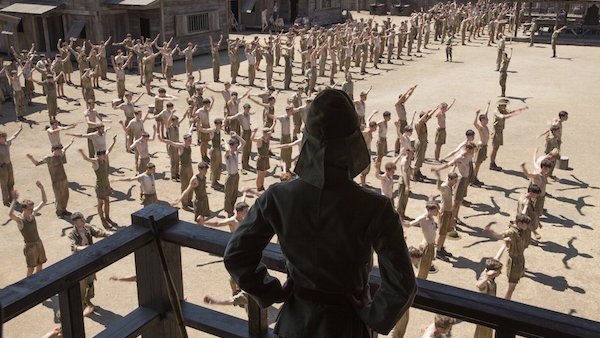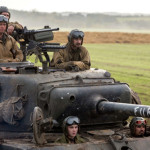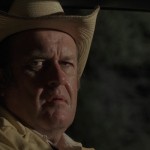Unbroken Review
With Unbroken, Angelina Jolie mistakes heroic misery for rousing inspiration. What should be—and is, in book form—a fully formed and moving story about unparalleled hardship and the triumph of the human spirit falls oddly flat on the screen. It’s a decent enough movie with moments of emotional and plainly visual beauty, but the screenplay’s episodic nature and lack of any character arc hold it back in ways most filmmakers—nevermind someone as inexperienced as Jolie—could overcome.
The film tells the story of Louis Zamperini (Jack O’Connell), a famous Olympic runner and medalist whose plane was shot down over the Pacific while serving as a WWII bombardier. With two companions—played here by Domhnall Gleeson and Finn Wittrock—Zamperini survived 47 days at sea before being picked up by the enemy. He then worked in several Japanese labor camps, where he was repeatedly tortured by a brutal man Zamp’s fellow POWs call “The Bird†(Japanese pop star Miyavi).
That’s ultimately the film’s chief problem: it can be summed up in a few quick, plot-driven sentences. Its defenders would argue that the scenarios are cyphers for an emotional journey and exceptional acting, and to be fair, I’ll give it both. Zamperini’s toughness and resiliency are moving, and Jack O’Connell is a phenomenal talent (better in Starred Up, but still quite good here). That said, the film is defined by its places, while its characters are often defined by the way they interact with these places. That’s easy enough to believe when you learn four screenwriters worked on this script, but perhaps a little less believable when you learn two of those screenwriters are Joel and Ethan Coen.
Outside of O’Connell, Unbroken’s chief pleasure is its cinematography—another unsurprising fact, natch, Roger Deakins. The film’s opening sequence might be its best—a thrilling flight through enemy fire—and Deakins’ vision of Zamperini’s 47 days at sea is softer but no less breathtaking than Claudio Miranda’s similar depiction in Life of Pi. Like Pi, Unbroken also features excellent (but this time, more practical) visual effects.
The film is undoubtedly a down-the-middle Oscar play, and to say otherwise is simply foolish. And to that end, it’s a significant step above The Theory of Everything, but several notches below something like Wild (which likely won’t compete for many gold statues, ironically enough). Still, there’s deep admiration, even love in every frame of Unbroken, and while one can’t help but wish there was a little more “umph” in the presentation, it’s hard to knock Jolie for making such a well-intentioned (and still relatively successful) film.

















